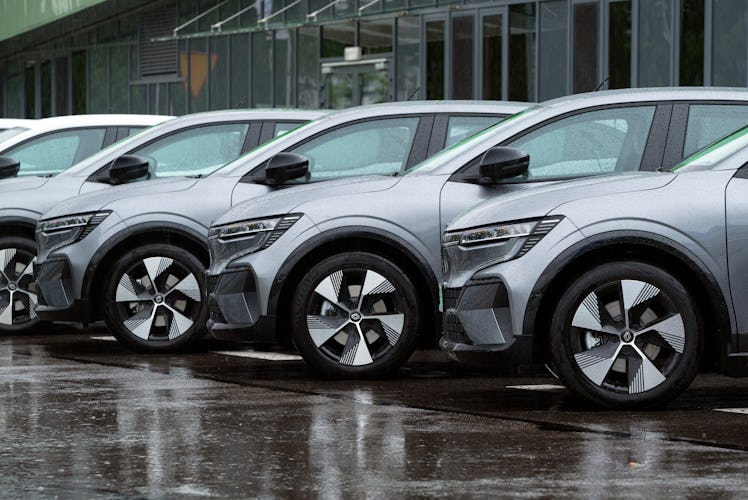Report Finds Charging Your Tank Cheaper Than Gassing It — In Just About Every Conceivable Way
Charge or gas? Here’s your answer.

A new report from The Washington Post and Energy Innovation, a policy think tank aimed at decarbonizing the energy sector, asks whether it’s cheaper to refill a gas car’s tank or recharge an electric vehicle’s battery. The data show that EVs are cheaper to “refuel” in every conceivable way — by a magnitude of $700 to $1,000 cheaper a year.
The joint report analyzed the costs of charging EVs versus fueling gasoline vehicles first by separating the data into three categories: sedans, SUVs, and trucks. Across the board, they used 2023 base models and assumed 14,263 miles were driven annually per vehicle (based on 2019 Federal Highway Administration data). The range, mileage, and emissions data came from the Environmental Protection Agency’s fueleconomy.gov, with gas prices tallied from July 2023 AAA data.
The analysis assumed that EV charging was done at home 80% of the time, with the rest done at public stations. The results notably did not include time-of-use pricing, discounts, rate designs, fees, operation expenses, and EV incentives., so your mileage may vary — pun intended.
Comparing the cost of EVs to gasoline isn’t a simple oranges-to-oranges comparison, because there are so many variables associated with EVs, which vary by state. And not just by state, but by “the time of day and even the outlet. EV owners may plug in at home or work and then pay a premium to fast-charge on the road,” noted The Washington Post.
This study factored in those differences and set up a few different variable comparisons to offer a more realistic view of where the costs could be compared. After collecting and analyzing the data, the study found that in all 50 states, it's cheaper to refuel with electricity than gasoline, which held true across all variables, even when using a fast charger.
The report then broke down a couple of scenarios highlighting how much cheaper it is to recharge an EV than refuel a vehicle.
Average savings per fill-up using an EV sedan vs. a gas vehicle, by state:
- Washington: $59
- Oregon: $53
- Nevada: $44
- Idaho: $43
- Utah: $42
- Arizona: $39
- Montana: $38
- Illinois: $37
- Alaska: $37
- Wyoming: $37
It’s important to note that there are fluctuations in the cost of gasoline and electricity, both of which have been rising over the past few months, which could change things. But as it stands right now, EVs appear to be consistently and significantly more affordable to “gas up,” than their combustible-engine counterparts.
For example, the report found that the total cost of filling up on gas for a cross-country road trip using a Toyota Camry would be approximately $141.70. In contrast, fueling a Chevrolet Bolt with a Level 2 commercial charger would cost $41.49. And the total cost to fill up for a road trip across California using a Honda CR-V would be approximately $65.82, whild fueling a Tesla Model Y using a Level 2 commercial charger would cost just $21.88. In both cases, EVs operate at a third of the cost of their gas counterparts.
This report adds to existing literature that finds that while EVs might be more expensive off the lot, they can be cheaper over time. One 2022 report found that EVs were cheaper than gas-powered vehicles in nearly every state. In addition, ultra-popular EV models have seen some price cuts over the past few months, and given all the new tax credits offered for switching to an EV from a gas vehicle, it’s not surprising so many are thinking about making the leap.
To read more, check out the full report on The Washington Post.